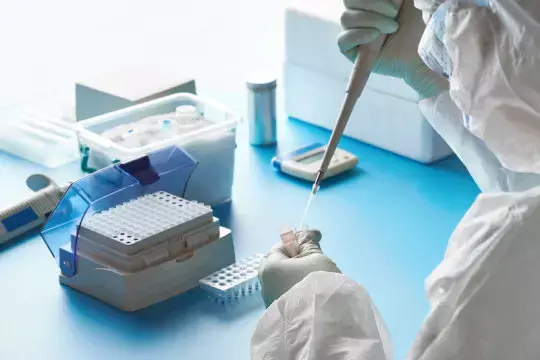- Home
- Medical news & Guidelines
- Anesthesiology
- Cardiology and CTVS
- Critical Care
- Dentistry
- Dermatology
- Diabetes and Endocrinology
- ENT
- Gastroenterology
- Medicine
- Nephrology
- Neurology
- Obstretics-Gynaecology
- Oncology
- Ophthalmology
- Orthopaedics
- Pediatrics-Neonatology
- Psychiatry
- Pulmonology
- Radiology
- Surgery
- Urology
- Laboratory Medicine
- Diet
- Nursing
- Paramedical
- Physiotherapy
- Health news
- Fact Check
- Bone Health Fact Check
- Brain Health Fact Check
- Cancer Related Fact Check
- Child Care Fact Check
- Dental and oral health fact check
- Diabetes and metabolic health fact check
- Diet and Nutrition Fact Check
- Eye and ENT Care Fact Check
- Fitness fact check
- Gut health fact check
- Heart health fact check
- Kidney health fact check
- Medical education fact check
- Men's health fact check
- Respiratory fact check
- Skin and hair care fact check
- Vaccine and Immunization fact check
- Women's health fact check
- AYUSH
- State News
- Andaman and Nicobar Islands
- Andhra Pradesh
- Arunachal Pradesh
- Assam
- Bihar
- Chandigarh
- Chattisgarh
- Dadra and Nagar Haveli
- Daman and Diu
- Delhi
- Goa
- Gujarat
- Haryana
- Himachal Pradesh
- Jammu & Kashmir
- Jharkhand
- Karnataka
- Kerala
- Ladakh
- Lakshadweep
- Madhya Pradesh
- Maharashtra
- Manipur
- Meghalaya
- Mizoram
- Nagaland
- Odisha
- Puducherry
- Punjab
- Rajasthan
- Sikkim
- Tamil Nadu
- Telangana
- Tripura
- Uttar Pradesh
- Uttrakhand
- West Bengal
- Medical Education
- Industry
Avapritinib effectively reduces indolent systemic mastocytosis severity: NEJM

Laboratory researcher, concept photo (stock image).
Credit: © tilialucida / stock.adobe.com
A new study by Jason Gotlib and team showed that in individuals with indolent systemic mastocytosis (ISM), avapritinib was more effective than a placebo at lowering uncontrolled symptoms and mast-cell load. The findings of this study were published in NEJM Evidence.
The KIT D816V mutation causes the clonal mast-cell illness known as indolent systemic mastocytosis. In order to compare the effectiveness and safety of avapritinib vs placebo in patients with ISM receiving the best supportive care, this research was carried out.
Avapritinib 25 mg once a day (n=141) or placebo (n=71) were given out randomly to patients with moderate to severe ISM (total symptom score [TSS] of 28; scores range from 0 to 110, with higher values indicating more severe symptoms). The 14-day average of the patient-reported severity of 11 symptoms served as the main endpoint for measuring mean change in TSS. Reduced levels of serum tryptase, blood KIT D816V variant allele fraction, TSS (50% and 30%), bone marrow mast cells (50%), and quality-of-life indicators were among the secondary end objectives.
The key findings of this study were:
Avapritinib-treated individuals saw a drop in TSS of 15.6 points (95% CI, 18.6 to 12.6) from baseline to week 24, as opposed to a fall of 9.2 points (13.1 to 5.2) in the placebo group; P = 0.003.
A 50% decrease in blood tryptase level was attained from baseline to Week 24 in 76/141 patients (54%; 45% to 62%) in the avapritinib group as opposed to 0/71 patients in the placebo group; P 0.001.
Avapritinib caused greater edema and alkaline phosphatase elevations than the placebo; nonetheless, there were few cases of therapy termination due to side effects.
Avapritinib exhibited superiority to placebo in treating symptoms in patients with mild to severe symptomatic ISM on BSC during this 24-week blinded phase of the PIONEER study. Overall AE incidence was comparable amongst the groups, and discontinuation rates were low. The current 5-year open-label extension is intended to assess the durability of avapritinib's effectiveness and safety.
Reference:
Gotlib, J., Castells, M., Elberink, H. O., Siebenhaar, F., Hartmann, K., Broesby-Olsen, S., George, T. I., Panse, J., Alvarez-Twose, I., Radia, D. H., Tashi, T., Bulai Livideanu, C., Sabato, V., Reiter, A., Pongdee, T., … Maurer, M. (2023). Avapritinib versus Placebo in Indolent Systemic Mastocytosis. In NEJM Evidence (Vol. 2, Issue 6). Massachusetts Medical Society. https://doi.org/10.1056/evidoa2200339
Neuroscience Masters graduate
Jacinthlyn Sylvia, a Neuroscience Master's graduate from Chennai has worked extensively in deciphering the neurobiology of cognition and motor control in aging. She also has spread-out exposure to Neurosurgery from her Bachelor’s. She is currently involved in active Neuro-Oncology research. She is an upcoming neuroscientist with a fiery passion for writing. Her news cover at Medical Dialogues feature recent discoveries and updates from the healthcare and biomedical research fields. She can be reached at editorial@medicaldialogues.in
Dr Kamal Kant Kohli-MBBS, DTCD- a chest specialist with more than 30 years of practice and a flair for writing clinical articles, Dr Kamal Kant Kohli joined Medical Dialogues as a Chief Editor of Medical News. Besides writing articles, as an editor, he proofreads and verifies all the medical content published on Medical Dialogues including those coming from journals, studies,medical conferences,guidelines etc. Email: drkohli@medicaldialogues.in. Contact no. 011-43720751


